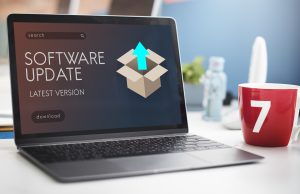Laravel, the PHP web application framework, has taken the developer community by storm with its elegant syntax and powerful features. As a Laravel developer, it’s essential to stay ahead of the curve and continually refine your skills. In this blog, we’ll explore ten pro tips that can help you enhance your craft and efficiency in Laravel development.
1. Follow the Solid Principles
SOLID is an acronym that stands for five important design principles in software development: Single Responsibility, Open/Closed, Liskov Substitution, Interface Segregation, and Dependency Inversion. These principles help you write clean and maintainable code. In Laravel, following these principles will lead to more modular and easier-to-maintain applications.

2. Opt for a Strong Development Environment
Set up a robust development environment using tools like Composer, Homestead, Valet, Docker, or Vagrant. These tools simplify dependency management and environment setup, ensure that your application runs consistently across different environments.

3. Leverage Eloquent Relationships
Eloquent, Laravel’s ORM, provides powerful features for working with databases. Take full advantage of Eloquent relationships, such as ‘hasOne’, ‘hasMany’, ‘belongsTo’, and ‘belongsToMany’. This allows you to easily manage your database relationships and write cleaner code.

4. Use Middleware for Authentication and Authorization
Laravel provides built-in middleware for handling authentication and authorization. Utilize the ‘auth’ and ‘can’ middleware to secure your routes and control who can access certain parts of your application. This helps you follow the principle of “Don’t Repeat Yourself” (DRY) and keep your code concise.

5. Implement Caching
Caching can significantly improve the performance of your Laravel application. Use Laravel’s caching system to store frequently accessed data and reduce the load on your database. You can use various cache drivers like Redis or Memcached.

6. Optimize Database Queries
Leverage Eloquent query builder to write efficient database queries. Use methods like ‘select’, ‘where’, ‘orderBy’, and ‘groupBy’ to build queries that retrieve only the data you need. Avoid the common N+1 query problem by using eager loading with the ‘with’ method.

7. Create API Endpoints
Laravel makes it easy to create RESTful APIs. Utilise Laravel’s built-in API features to expose your application’s data to other services and applications. Consider using packages like Dingo API for more advanced API development.

8. Write Tests
Testing is crucial for maintaining a robust Laravel application. Laravel comes with PHPUnit support out of the box. Write unit tests, integration tests, and feature tests to ensure that your application behaves as expected. Test-Driven Development (TDD) can be a valuable approach to building Laravel applications.

9. Stay Updated
The Laravel framework is continually evolving. To stay at the top of your game, make it a priority to stay updated with the latest trends and updates in the Laravel ecosystem. Subscribe to Laravel blogs and participate in Laravel-related forums and communities to learn from others and contribute to the Laravel community. Click on the link to find the top platform for keeping yourself informed.

10. Explore Laravel Packages
Laravel’s package ecosystem is vast, and you can find packages for almost anything you need. Using well-maintained packages can save you a lot of development time and ensure code quality.

In conclusion, Laravel is a powerful framework that can help you build robust web applications quickly. By following these pro tips, you can improve your Laravel development skills and create applications that are maintainable, efficient, and scalable. Keep learning and exploring the Laravel ecosystem, and you’ll be well on your way to becoming a top-notch Laravel developer. Happy coding!










